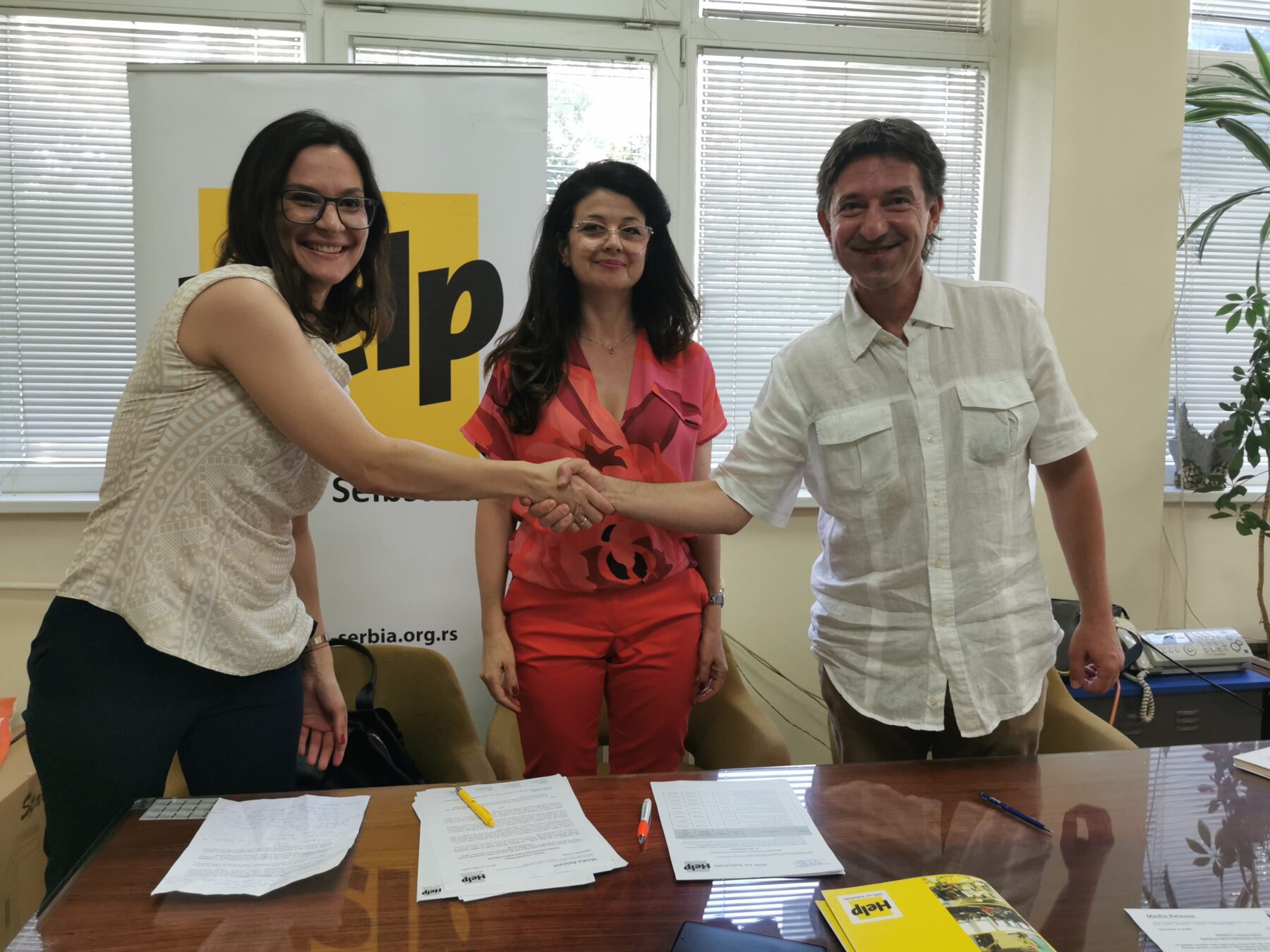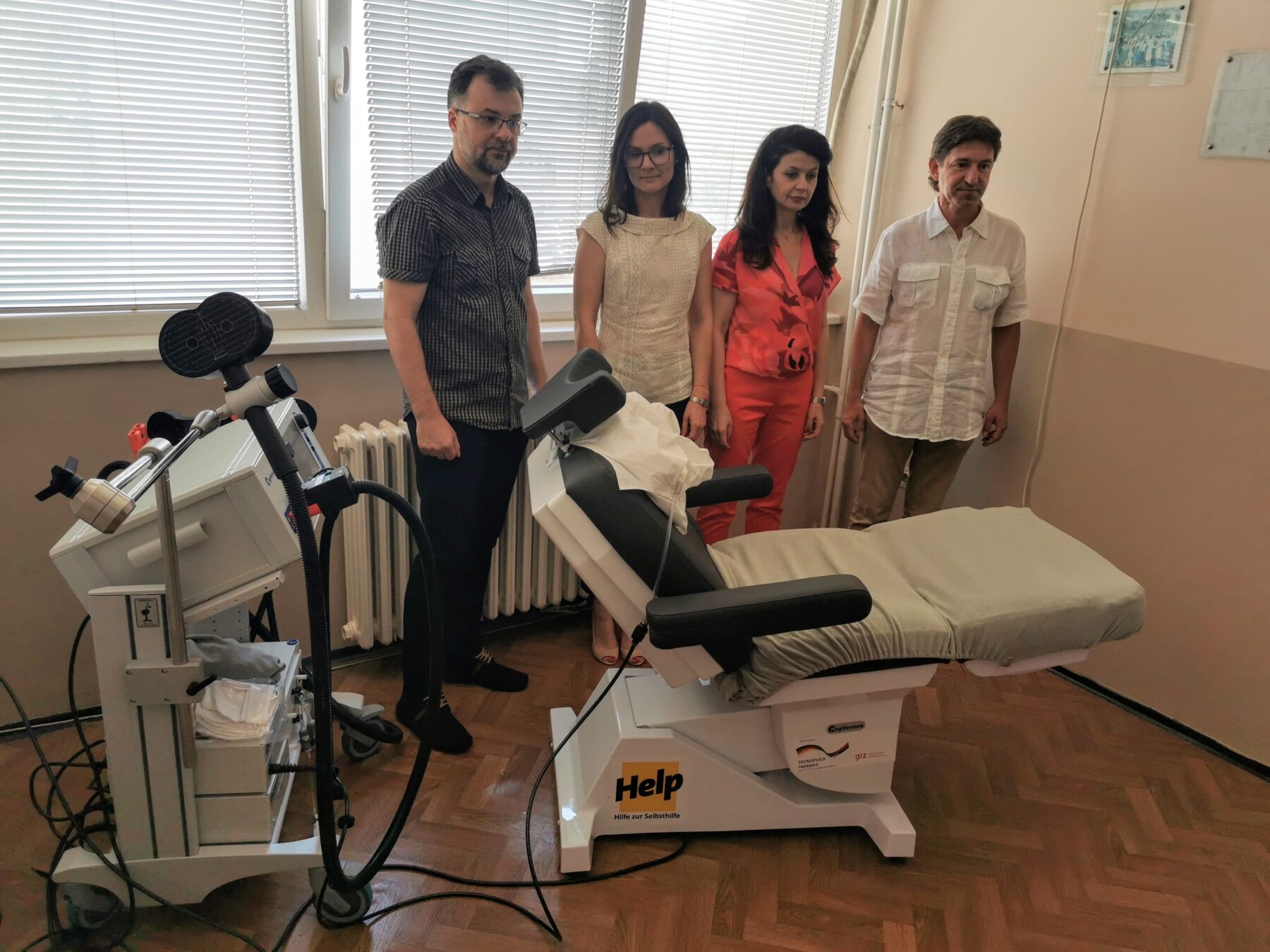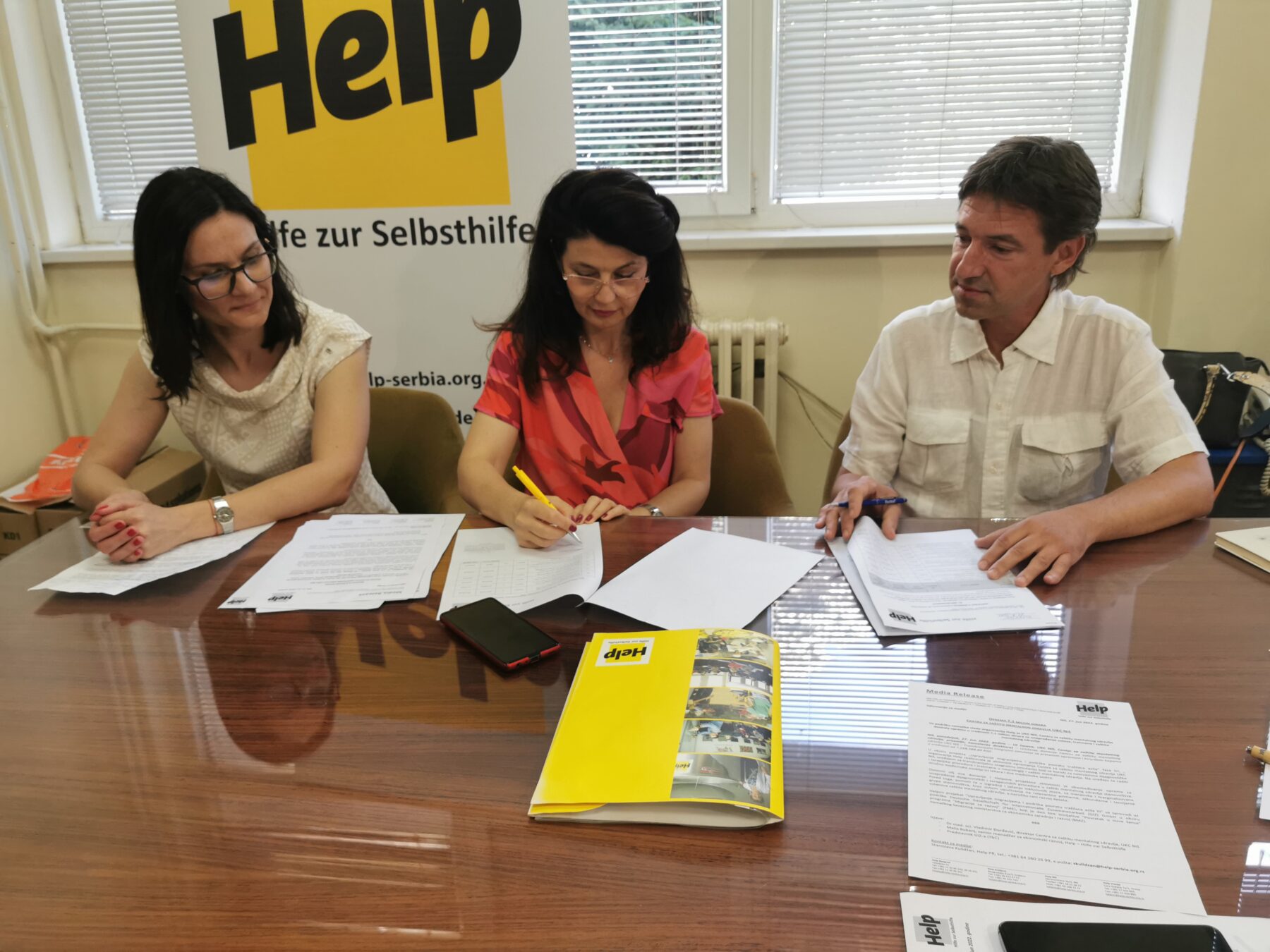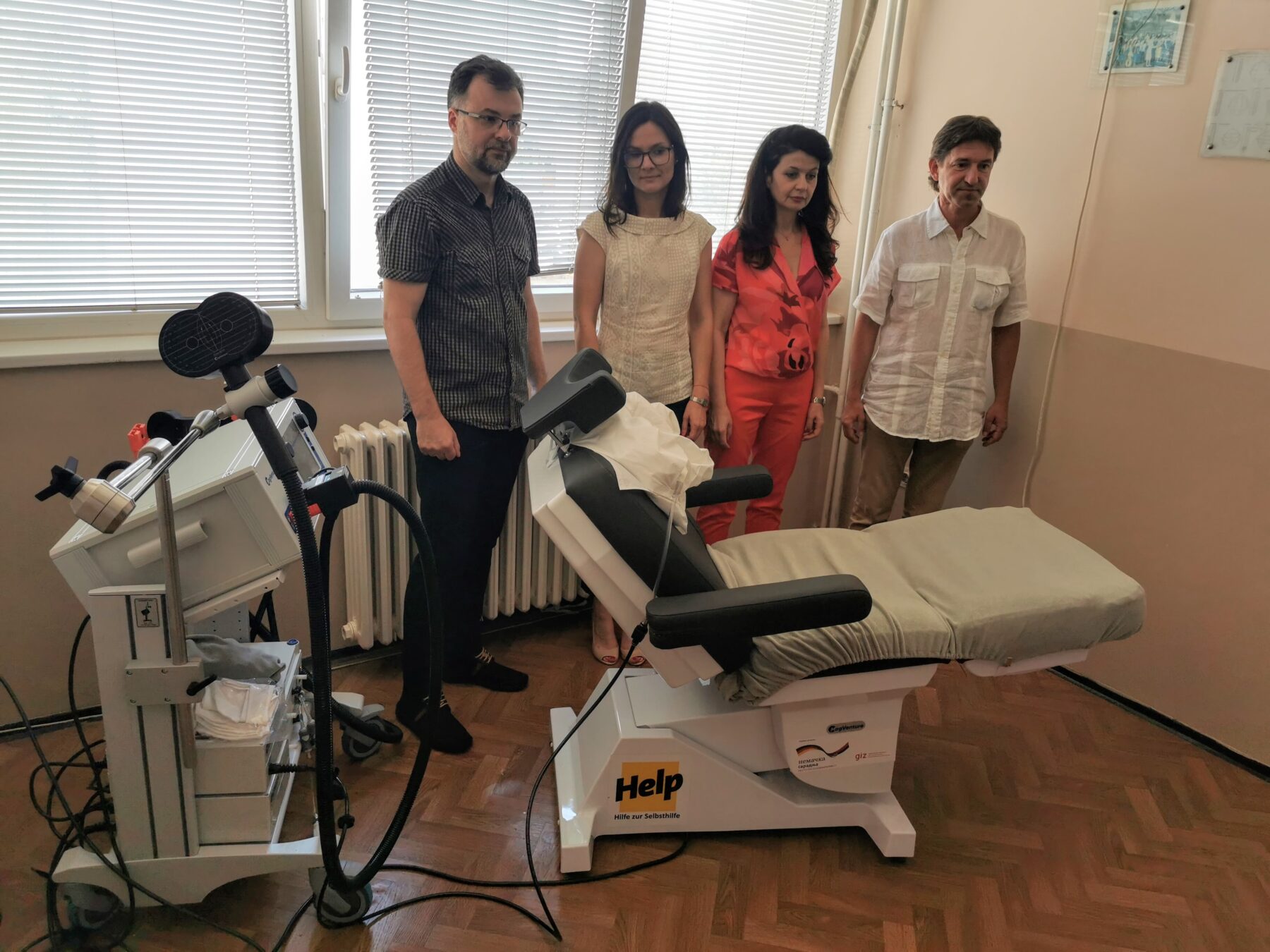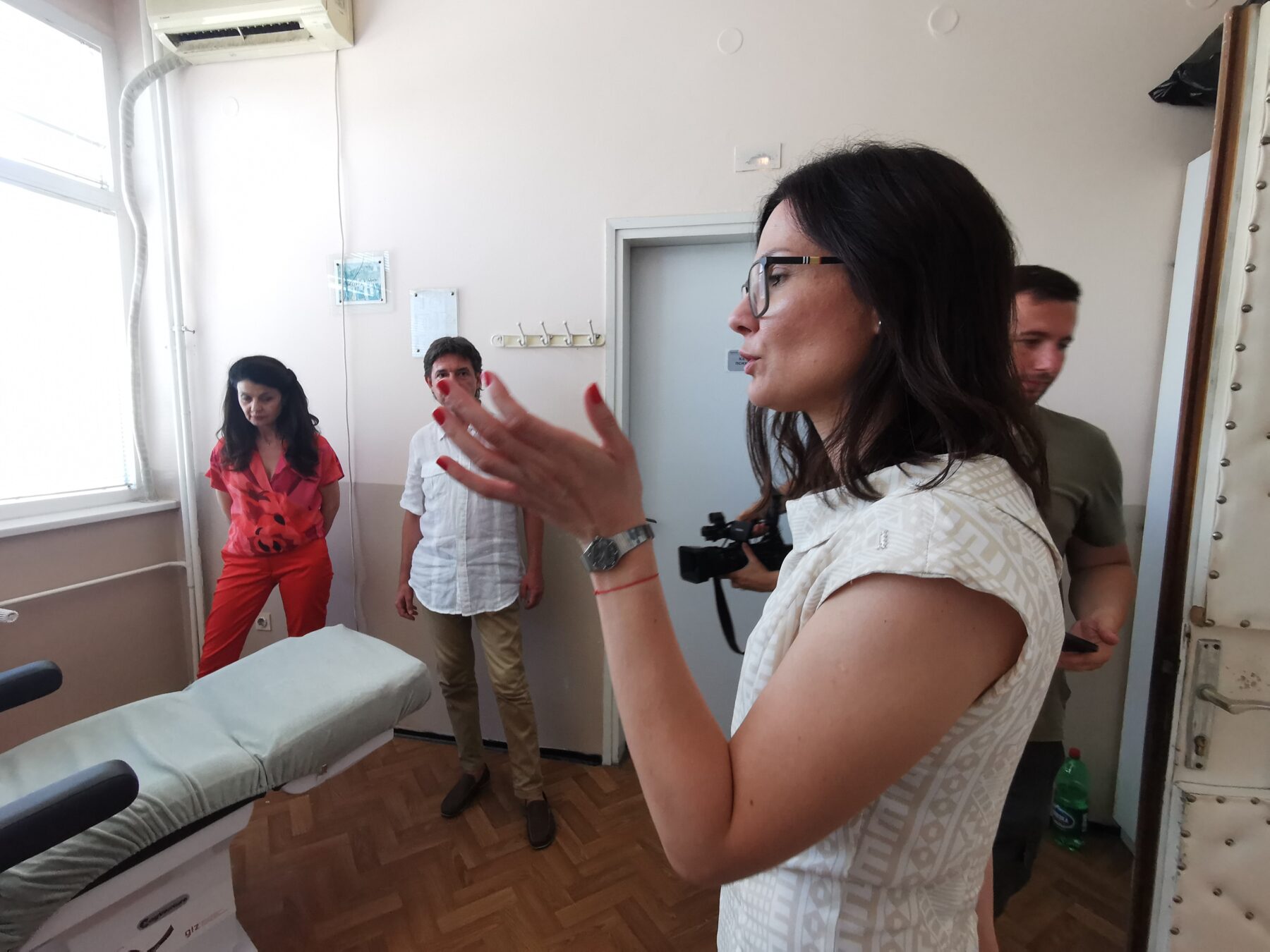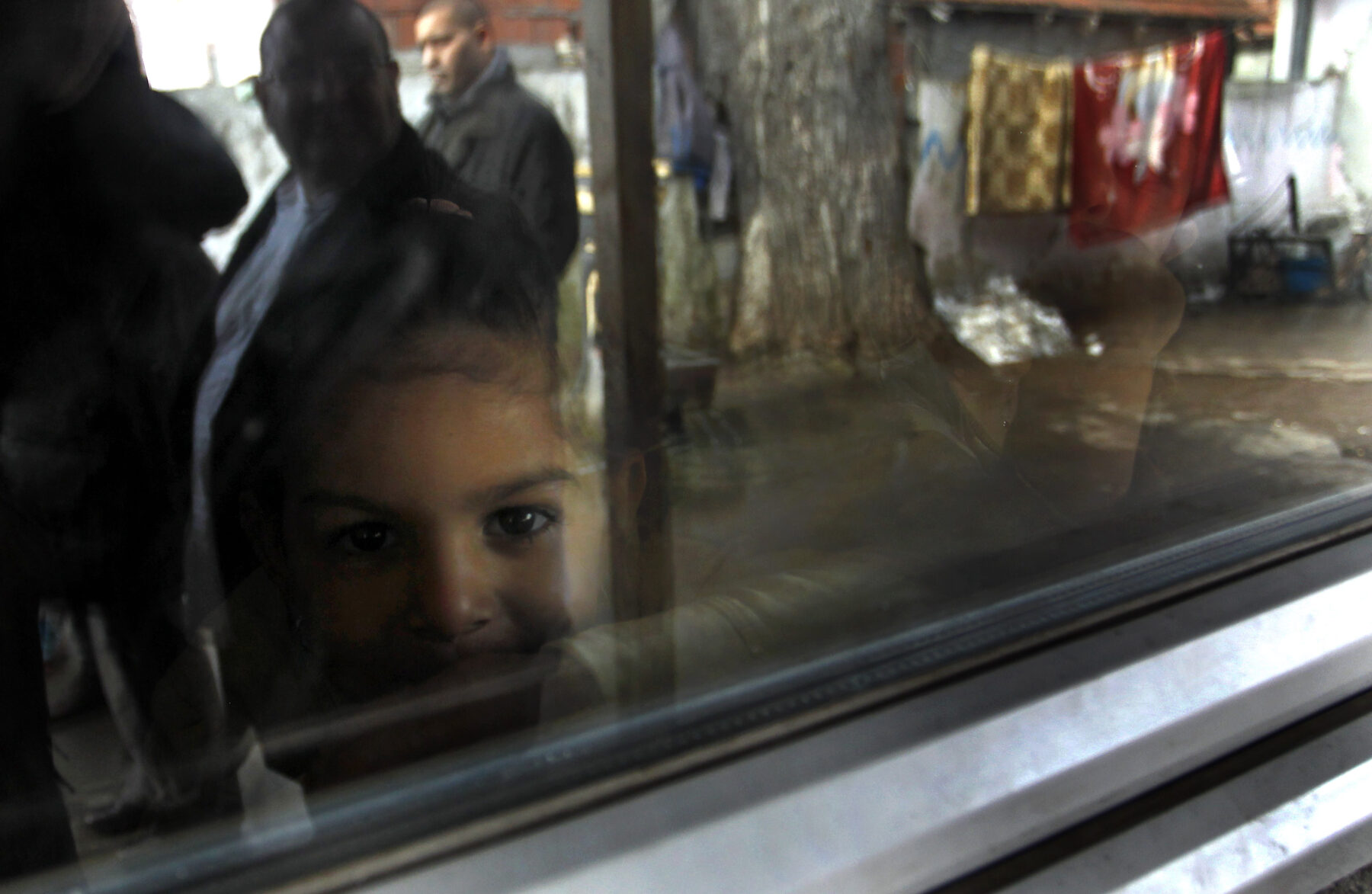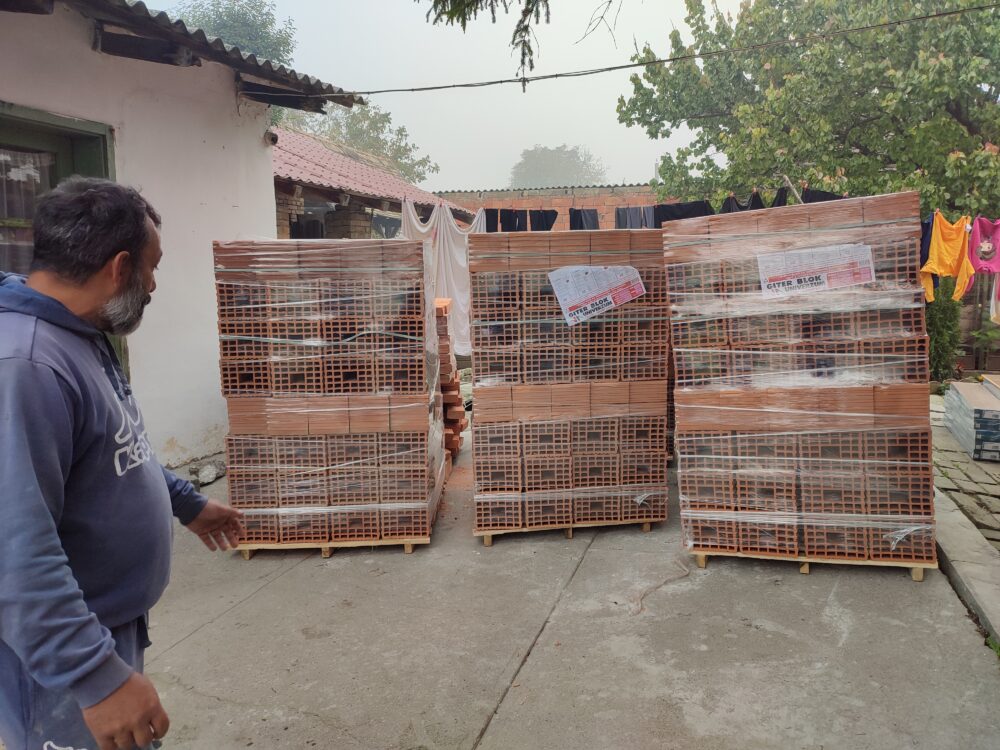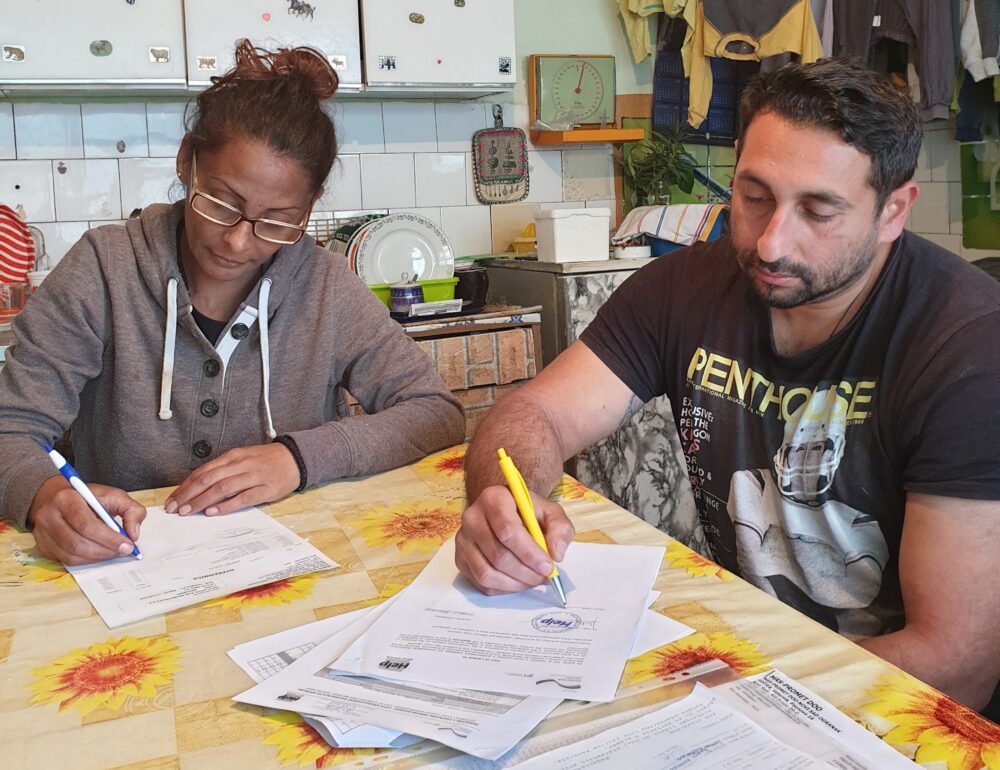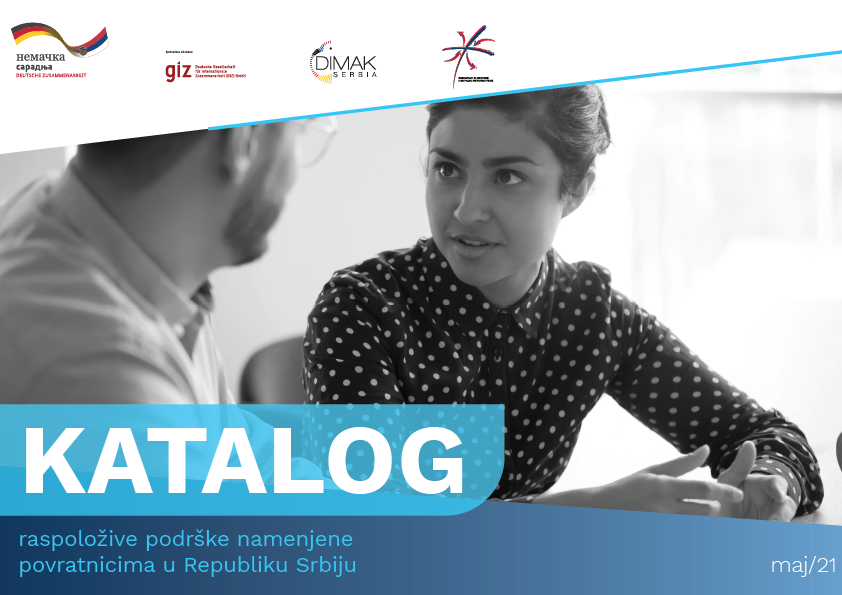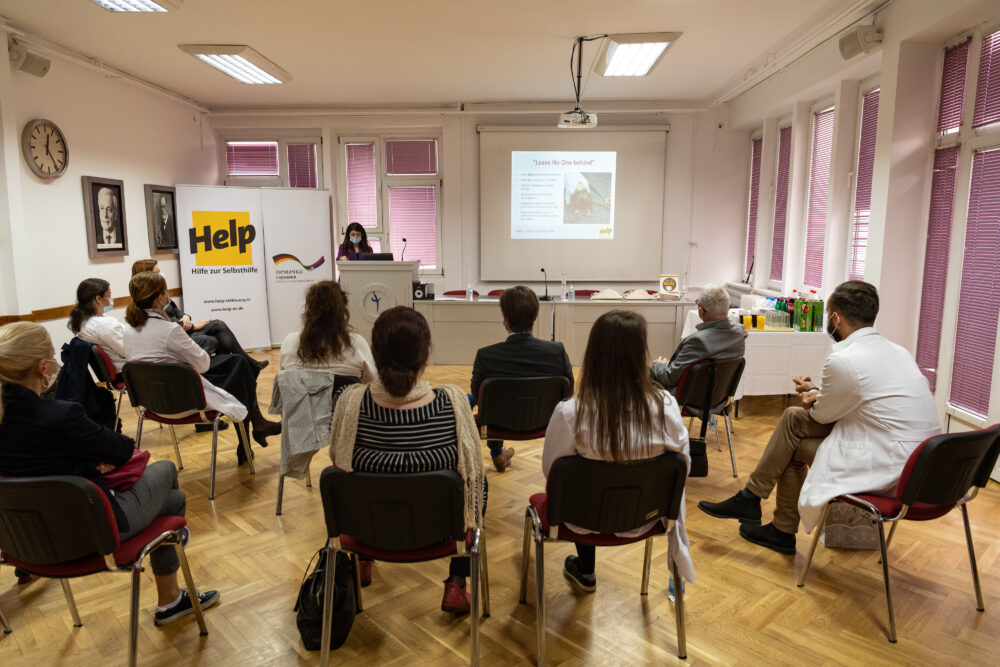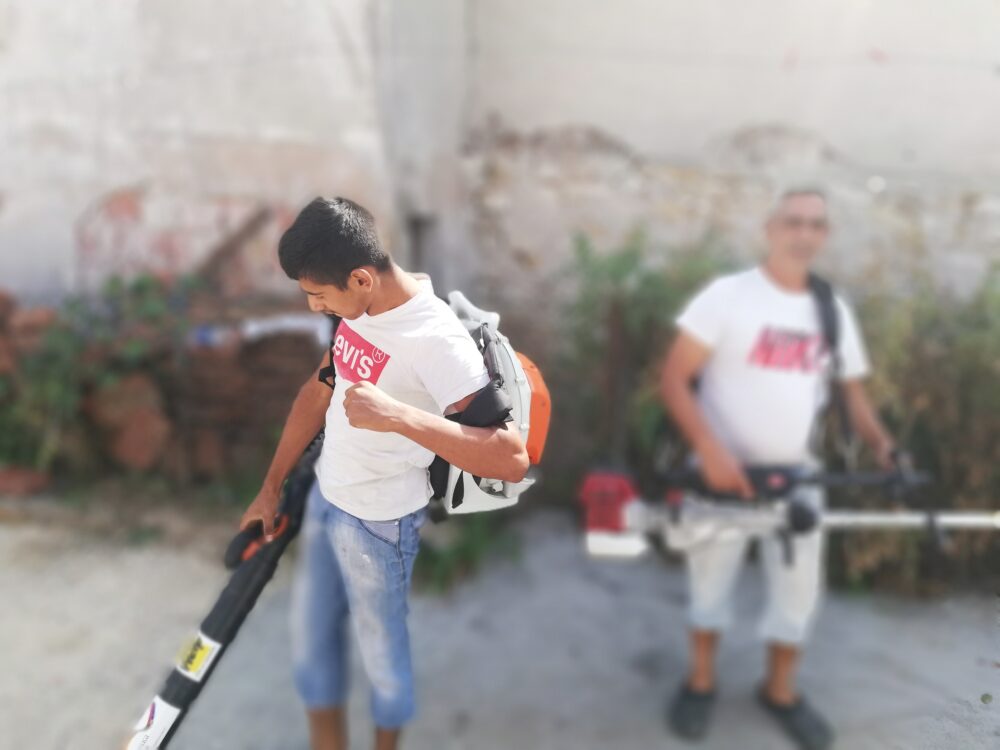Supporting the mental health of the vulnerable
Advanced transcranial magnetic stimulator with accompanying equipment donated to the Mental Health Clinic of the University Clinical Centre Nis.
With the support of the German Government, the organisation Help donated a transcranial magnetic stimulator with the accompanying equipment worth 7,1 million dinars to the Centre for mental health protection of the University Clinical Centre Nis, to improve conditions, treatment and protection of mental health and early development.
Director of the Centre for Mental Health UCC Nis, Dr. med. sci. Vladimir Djordjevic referred to the long-term cooperation and support of Help and the German Government, in improving the working conditions of doctors and the treatment of the patients.
“Today’s donation presents the crown of many years of cooperation and support of Help and the German Government, with whose assistance several projects worth about 250 thousand euros have been realised so far aimed at improving the working conditions and raising the quality of health services,” said Djordjevic.
“From the point of view of the profession, this donation is important because we can keep up with the world and most contemporary attainments of medical science and profession. It is the only device of this type currently available in the state institutions in Serbia. This device represents the advanced acts in the treatment of mental and neurological disorders and works on the principles of magnetic stimulation of the brain with wide application and proven efficiency where drugs give no or minimal results”.
The main goal of this donation is to provide equipment for the improvement of diagnostic and therapeutic procedures in the protection of the mental health of the population. In addition, it helps build and strengthen inclusive measures of minority and marginalised groups through a referral system to relevant primary, secondary and tertiary mental health services, in particular the early child development.
“The priority of Help and GIZ is to improve the position of vulnerable people in Serbia, returnees under the readmission agreement and children with disabilities. And that is one of the reasons for cooperation with the Clinical Centre Nis, Centre for mental Health Protection and Child Psychiatry Department. We hope, that with our activities, we will be able to further contribute to the improvement of mental health protection in Serbia” pointed out Masa Bubanj, Senior Manager for Economic Development at Help.
The donation was realised within the Help project “Migration Management and Support for the Return of Asylum Seekers III” and the global programme “Migration for Development” (PME) of the German Development Cooperation, implemented by GIZ in Serbia.
“Insufficient inclusion in the labour market, complicated socio-economic conditions and lack of social integration among returnees are risk factors for mental health, which is important to successful reintegration,” said Marija Dragic, Project Manager at GIZ, and added:
“German Development Cooperation, through the “Migration for Development” programs, implemented in cooperation with partners, seeks to improve the conditions of returnees, individuals but also their families, through various forms of empowerment. Not only the improvement of housing conditions, the provision of professional training to facilitate their access to the labour market, employment or starting their own business but also inclusion in the social welfare and health care systems,” said Dragic.
Help’s project “Migration management and support for the return of asylum seekers III” is implemented with the support of Deutsche Gesellschaft für Internationalle Zusammenarbeit (GIZ) GmbH under the “Migration for Development” (PME) program, which is a part of a broader initiative “Back to New Opportunities” by the German Federal Ministry for Economic Cooperation and Development (BMZ).
Project
Migration management and support to return of asylum seekers III
Providing continuous and comprehensive long-term assistance to returnees - asylum seekers, socially vulnerable and other vulnerable groups.
